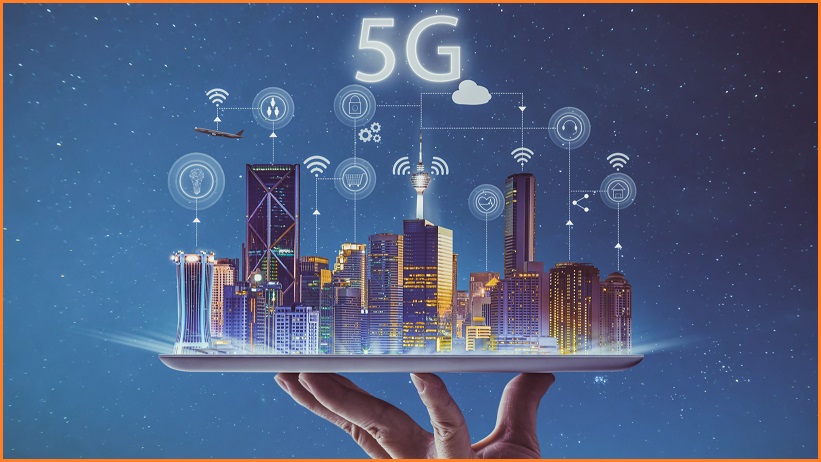Australia’s 5G rollout is likely to be driven as much by private enterprise as it is by telecommunications carriers, with a major construction company announcing it has seen 20 times faster mobile performance and carriers launching a host of private 5G services that could crowd the airwaves – and the suburbs – with 5G equipment.
Relying on a 4G carrier network had proven challenging and expensive to manage for Taylor Constructions, which in February began implementing enterprise-grade 5G equipment from Telstra and Cradlepoint – blanketing one of its construction sites with what is effectively turbo-charged wifi.
The company has been experimenting with a range of applications that use 5G-connected smart sensors, virtual-reality building visualisation using Microsoft HoloLens, 360-degree 8K wireless video cameras, real-time design display on monitors in project trailers, and potentially as a replacement backup service for its current fibre solution.
A speed increase of 20 times over previous technology “has transformed our ability to employ high-performing enterprise-grade applications, top to bottom,” said IT manager Christian Nayle.
“We could have used fibre, but mobility is also important – which is why 5G is the only solution that works”.
5G an executive priority
Controversy over 5G rollouts – which provide faster service but transfer data over shorter distances – has been an ongoing feature of the transition to the new technology, with carriers jockeying for speed bragging rights, targeting national broadband network (NBN) weak spots with competing fixed-5G services, regulators considering limits to kerb Telstra’s market power, and the government looking to industry for guidance about just what the technology is actually good for.
In the longer term, analysts believe it will become favoured by businesses that view it as a step change in the way they connect users and systems across their offices, manufacturing and other work sites.
“It is telling that networking executives don’t view 5G and Wi-Fi 6 as incremental improvements to previous generations of wireless, but as a significant opportunity to transform how their enterprises operate,” Deloitte analysts noted in a recent examination of private 5G’s prospects.
Some 86 per cent of executives, Deloitte found, believe the technology will transform their organisation within the next three years while 38 per cent said the technology is “critically important” to them now – increasing to 52 per cent within three years.
“As the next-gen wireless future rapidly becomes a reality,” they wrote, “carriers and enterprises alike should decide how to participate in the evolving ecosystem…. Executives are very willing to reconsider [vendor] relationships in their migration to advanced wireless.”
Public question, private answer
Site-based deployments of 5G – which is being rolled into venues like stadiums, airports and office parks – will help increase usage of the technology much more quickly than if those businesses waited for carriers to roll out the technology in their area.
Telstra, for one, has already flagged the importance of government support to extend the 5G network’s coverage – highlighting the likely focus of 5G rollouts in densely populated areas with large numbers of potential customers.
By diversifying rollout strategies, however, 5G rollouts could reach wide saturation much more quickly – helping technology use cases add $11 trillion ($US8t) to global GDP by 2030, Nokia has forecasted on the back of a new study that found 83 per cent of IT decision-makers see value in 5G’s ability to provide high-quality video monitoring and analytics streams.
Some 77 per cent see value in 5G-enabled connected machinery, while fixed wireless access (73 per cent), connected vehicles (74 per cent), and immersive experiences (55 per cent) are all on the enterprise radar.
Recent weeks have seen global carriers ramping up their rhetoric and service offerings around 5G, with Verizon Business joining Nokia to offer turnkey private 5G services to companies in Europe and the Asia-Pacific region – echoing recent partnerships by the likes of NTT Data and Mavenir, and AT&T and Ericsson.
Telstra has been actively exploring 5G’s enterprise potential and has partnered with the likes of Verizon and others in a 5G Future Forum, which will standardise 5G to ensure capabilities such as roaming onto and off of private 5G networks.
Optus, for its part, recently reported setting a 5G speed record and gave its mobile virtual network operator (MVNO) customers the ability to resell its 5G services, extending the global market rush currently underway.
The Asia-Pacific region will be at the vanguard of private 5G, Verizon “for a very long time has been a bedrock of technology, innovation, and early adoption,” Verizon director of corporate communications Jeremy Godwin said in launching the firm’s private 5G offering.
“Combined with the vibrancy of the Asia-Pacific market – many of which already have spectrum available for these applications – we really feel the sky is the limit for enterprises adopting this technology in the region.”










